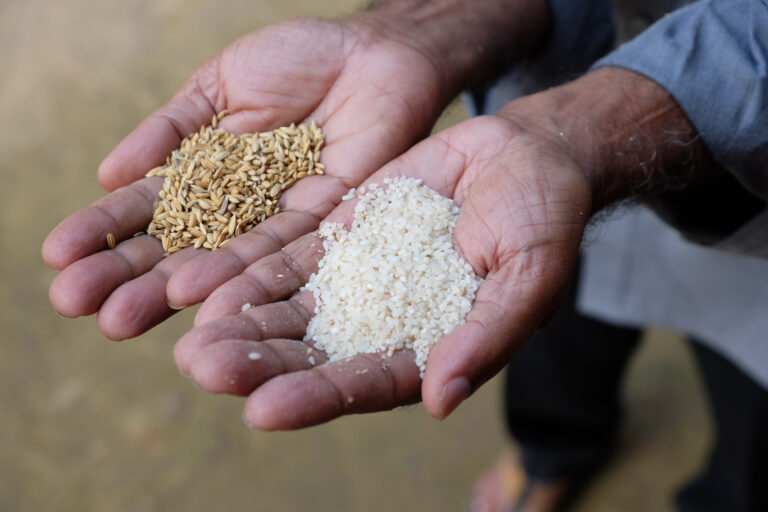On the occasion of the upcoming UN Food Systems Stocktaking Moment to take place in Rome, Italy from 24-26 July 2023 with the aim to provide opportunities for countries to report on progress made at the national level since the UN Food Systems Summit in 2021, Caritas confederation concerns border on the corporate capture of global food governance that threatens a balanced global and local food governance, and multistakeholderism- that brings limited involvement of farmers in the food system.
Caritas urges firmly stating that the stocktaking moment must have justice and human dignity at the centerpiece, to live out the “leave no one behind” principle underpinning Agenda 2030. The voices of every human being and stakeholders must be considered in the stocktaking moment, and those who bear special responsibility (public decision-makers, the private sector) can no longer be indifferent to the sufferings of the poor and to the devastating exploitation of natural resources.

In villages in the area of Wayanad in the Indian state of Kerala, the Caritas FARM (Faciliating Agriculture Regeneration Measures) programme linked impoverished families with government programmes, introduced organic farming methods, and helped them earn a living.
Caritas calls for:
- A human rights-based approach to food systems that puts people – and their living environment before profits. This will ensure that approaches serve social needs and oblige States to grant people adequate social protection, inclusive participation and access to means of redress.
- The democratization of decision-making processes regarding food systems, which should be part of the food systems transformation agenda. Caritas organizations advocate for uncovering injustice and for food systems where corporate actors are made accountable through adequate national and international normative frameworks on corporate responsibility and due diligence.
- Agroecology as a path to just, equitable, sustainable and resilient Food Systems, and an alternative to industrial farming. Among the negative effects of industrial agriculture, Caritas counts water waste and shortages, high greenhouse-gas emissions, soil degradation and land grabbing, while Agroecology is founded on the principles of ecological agriculture, maintaining soil fertility and the farm’s independence from external inputs. Further and in Caritas experience, this has contributed to enhancing the sustainability of local food systems, and to climate change adaptation and mitigation.
- The role of public global, national and sub-national authorities is key to bring together all concerned actors and guarantee meaningful participation of local producers and consumers in policy-making and implementation. At all levels, governments and public international authorities have to maintain democratic, inclusive and accountable policy spaces to dialogue with all concerned parties.
- Women to play an essential role in food systems transformation. Equal access to resources and effective participation in decision-making, recognition of their economic and political leadership are necessary requirements to transform food systems consistently with Integral Ecology and food justice.
Lastly, Caritas organizations hope that the stockstaking moment will reflect on the structural injustices that have led the world where it is today. At the heart of the problems of food insecurity, hunger and malnutrition are human beings with dignity, relations and hopes. As Pope Francis says, forgetting them in favor of purely technical solutions separates “what is in reality interconnected and” masks “the true and deepest problems of the global system.” (LS 111)
Read more: CARITAS CONFEDERATION KEY MESSAGES TO THE UN FOOD SYSTEMS SUMMIT
